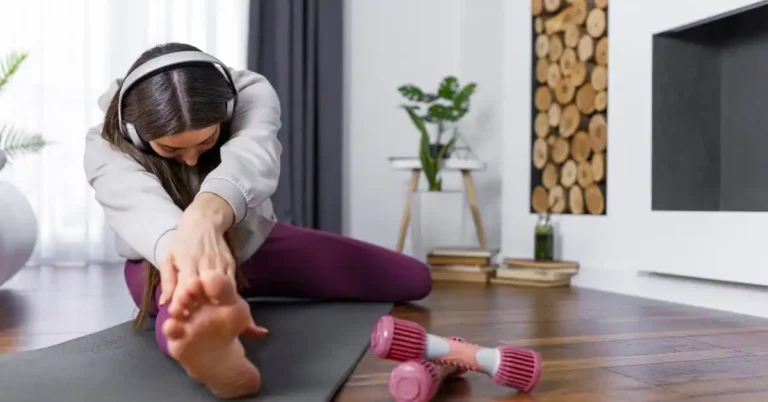Tips for a Restorative Night Sleep
Introduction
In our fast-paced world, getting enough sleep is often sacrificed in the pursuit of productivity. Yet, what if I told you that the key to radiant skin, improved mood, and enhanced overall well-being lies in the quality of your sleep? Welcome to the world of beauty sleep secrets—a realm where rejuvenation and restoration go hand in hand with a good night’s rest. In this article, we’ll delve into expert tips to ensure you get the beauty sleep you deserve.
Prioritize Sleep Hygiene
Prioritizing sleep hygiene is essential for ensuring a restorative night’s sleep and reaping the benefits of beauty sleep. Sleep hygiene encompasses various practices and habits that promote healthy sleep patterns and optimize the quality of your rest. Here are some key strategies to prioritize sleep hygiene:
- Establish a Consistent Sleep Schedule:
- Set a regular bedtime and wake-up time, even on weekends. Consistency helps regulate your body’s internal clock, making it easier to fall asleep and wake up feeling refreshed.
- Avoid drastic changes to your sleep schedule, as this can disrupt your body’s natural rhythm. Stick to your established sleep routine as much as possible.
- Create a Relaxing Bedtime Routine:
- Develop a calming pre-sleep ritual to signal to your body that it’s time to unwind. This may include activities such as reading a book, taking a warm bath, or practicing gentle stretching or yoga.
- Steer clear of stimulating activities before bed, such as watching intense movies or engaging in stimulating conversations. These can elevate cortisol levels and make it harder to fall asleep.
- Optimize Your Sleep Environment:
- Make your bedroom a sleep-friendly sanctuary by keeping it cool, dark, and quiet. Consider using blackout curtains, white noise machines, or earplugs to minimize disruptions.
- Invest in a comfortable mattress, pillows, and bedding that provide adequate support and promote relaxation. Your sleep environment should be conducive to rest and relaxation.
- Watch What You Eat and Drink:
- Be mindful of your diet, especially in the hours leading up to bedtime. Avoid heavy, rich meals, spicy foods, caffeine, and alcohol, as these can disrupt sleep and cause discomfort.
- If you’re hungry before bed, opt for light, easily digestible snacks like a small piece of fruit, a handful of nuts, or a glass of warm milk. Avoid consuming large meals or stimulating beverages close to bedtime.
- Limit Exposure to Screens:
- The blue light emitted by electronic devices like smartphones, tablets, and computers can interfere with your body’s natural sleep-wake cycle. Minimize screen time at least an hour before bedtime to promote relaxation and prepare your brain for sleep.
- Consider using blue light filters or “night mode” settings on your devices to reduce exposure to stimulating light in the evening hours.
Mind Your Diet and Exercise
Mindful attention to diet and exercise plays a crucial role in optimizing sleep quality and embracing the concept of beauty sleep. By nourishing your body with the right nutrients and engaging in regular physical activity, you can create the ideal conditions for a restorative night’s sleep. Here are some key strategies to mind your diet and exercise for better sleep:

- Balanced Nutrition:
- Incorporate a Well-Balanced Diet: Aim to consume a variety of nutrient-rich foods, including fruits, vegetables, whole grains, lean proteins, and healthy fats. These provide essential vitamins, minerals, and antioxidants that support overall health, including sleep regulation.
- Watch Your Timing: Be mindful of when and what you eat, especially in the hours leading up to bedtime. Avoid heavy, spicy, or high-fat meals close to bedtime, as they can cause discomfort and disrupt sleep. Instead, opt for lighter, easily digestible snacks if you’re hungry before bed.
- Hydrate Wisely: Stay hydrated throughout the day, but be cautious of consuming excessive fluids right before bedtime to minimize disruptions from bathroom visits during the night.
- Regular Exercise:
- Engage in Regular Physical Activity: Incorporate moderate aerobic exercise, such as walking, cycling, or swimming, into your daily routine. Aim for at least 30 minutes of exercise most days of the week, but avoid vigorous workouts too close to bedtime, as they may interfere with sleep.
- Time Your Workouts Appropriately: Schedule exercise sessions earlier in the day or during the late afternoon to allow your body to wind down and relax in the evening. Physical activity can promote deeper, more restorative sleep when timed correctly.
- Explore Relaxing Activities: Incorporate relaxation-focused activities like yoga, tai chi, or gentle stretching into your routine. These practices can help reduce stress, promote relaxation, and prepare your body for sleep.
- Mindful Eating Habits:
- Practice Mindful Eating: Pay attention to your body’s hunger and fullness cues, and avoid mindless snacking or eating out of boredom. Eating slowly and savoring your meals can promote digestion and prevent discomfort that may interfere with sleep.
- Limit Stimulants: Be cautious of consuming stimulants like caffeine and nicotine, which can disrupt sleep patterns and contribute to insomnia. Limit your intake of caffeinated beverages, especially in the afternoon and evening hours, to avoid interference with sleep.
- Consider Herbal Remedies: Explore natural remedies such as herbal teas or supplements that promote relaxation and support sleep, such as chamomile, valerian root, or passionflower. Consult with a healthcare professional before incorporating new supplements into your routine.
By minding your diet and exercise habits, you can create a supportive foundation for achieving restorative sleep and reaping the benefits of beauty sleep. Incorporate nutrient-rich foods, regular physical activity, and mindful eating practices into your lifestyle to optimize sleep quality and wake up feeling refreshed, revitalized, and ready to take on the day with radiant energy and vitality.
Manage Stress and Anxiety
Effectively managing stress and anxiety is paramount for ensuring a restorative night’s sleep and unlocking the secrets of beauty sleep. Chronic stress and anxiety can disrupt sleep patterns, leading to difficulties falling asleep, staying asleep, or experiencing restful sleep. By implementing strategies to manage stress and promote relaxation, you can create an environment conducive to achieving deep, rejuvenating sleep. Here are some effective techniques for managing stress and anxiety:

- Practice Relaxation Techniques:
- Deep Breathing Exercises: Incorporate deep breathing exercises into your daily routine to promote relaxation and reduce stress levels. Practice deep, diaphragmatic breathing by inhaling deeply through your nose, holding for a few seconds, and exhaling slowly through your mouth.
- Progressive Muscle Relaxation: Progressive muscle relaxation involves tensing and then relaxing each muscle group in your body, starting from your toes and working your way up to your head. This technique can help release tension and promote physical and mental relaxation.
- Meditation and Mindfulness: Engage in mindfulness meditation practices to cultivate present-moment awareness and reduce stress. Set aside time each day to sit quietly, focus on your breath, and observe your thoughts and sensations without judgment.
- Establish a Stress-Relief Routine:
- Schedule Regular Breaks: Incorporate short breaks throughout your day to step away from work or responsibilities and engage in activities that promote relaxation and stress relief. Whether it’s taking a short walk, listening to calming music, or practicing a hobby, find activities that help you unwind and recharge.
- Create Boundaries: Set boundaries around your time and energy to prioritize self-care and prevent burnout. Learn to say no to additional commitments or responsibilities when your plate is full, and prioritize activities that nourish your well-being.
- Find Joy in Simple Pleasures: Cultivate gratitude and find joy in simple pleasures by focusing on the present moment and appreciating the beauty around you. Spend time in nature, connect with loved ones, or engage in activities that bring you joy and fulfillment.
- Seek Support:
- Connect with Others: Reach out to friends, family members, or support groups for emotional support and connection. Sharing your feelings and experiences with trusted individuals can provide comfort and perspective, reducing feelings of loneliness and isolation.
- Consider Professional Help: If stress and anxiety are significantly impacting your sleep and daily functioning, consider seeking support from a mental health professional. Therapy, counseling, or cognitive-behavioral techniques can provide effective strategies for managing stress and improving sleep quality.
- Practice Self-Compassion: Be kind to yourself and practice self-compassion during times of stress and difficulty. Acknowledge your feelings without judgment and treat yourself with the same kindness and understanding you would offer to a friend in need.
- Create a Calming Sleep Environment:
- Establish a Relaxing Bedtime Routine: Wind down before bed with calming activities such as reading, gentle stretching, or taking a warm bath. Create a soothing bedtime routine that signals to your body and mind that it’s time to relax and prepare for sleep.
- Reduce Stimuli Before Bed: Minimize exposure to stimulating activities, screens, and electronic devices in the hours leading up to bedtime. Create a screen-free zone in your bedroom and engage in relaxing activities that promote relaxation and stress relief.
Invest in Sleep-Supporting Products
Investing in sleep-supporting products can significantly enhance your sleep environment and promote restorative, beauty-enhancing sleep. From comfortable bedding to relaxation aids, these products can create the ideal conditions for achieving deep, rejuvenating rest. Here are some sleep-supporting products to consider incorporating into your nightly routine:

- High-Quality Mattress and Pillows:
- A supportive mattress and pillows are essential for proper spinal alignment and comfort during sleep. Invest in a high-quality mattress that suits your preferences for firmness and material, whether it’s memory foam, latex, or innerspring.
- Choose pillows that provide adequate support for your head and neck, promoting proper alignment and reducing discomfort. Consider pillows designed for specific sleep positions, such as side, back, or stomach sleeping, to optimize comfort and support.
- Breathable Bedding:
- Opt for breathable, moisture-wicking bedding materials like cotton or bamboo to regulate body temperature and promote airflow. Breathable bedding helps prevent overheating and discomfort, creating a more comfortable sleep environment.
- Look for bedding with moisture-wicking properties to help keep you dry and comfortable throughout the night. Moisture-wicking fabrics can help prevent sweat buildup, reducing the risk of skin irritation and promoting a more restful sleep experience.
- Weighted Blankets:
- Weighted blankets provide gentle pressure across the body, promoting relaxation and reducing stress and anxiety. The deep pressure stimulation from a weighted blanket can increase serotonin and melatonin levels, leading to improved sleep quality and reduced tossing and turning.
- Choose a weighted blanket that’s approximately 10% of your body weight for optimal comfort and effectiveness. Experiment with different weights and materials to find the right balance of pressure and breathability for your preferences.
- White Noise Machines or Sleep Sound Devices:
- White noise machines or sleep sound devices can create a soothing auditory environment that masks disruptive noises and promotes relaxation. These devices emit consistent, calming sounds like white noise, nature sounds, or gentle melodies, helping you drift off to sleep more easily.
- Look for white noise machines with adjustable volume and sound options to customize your sleep environment to your preferences. Some devices also offer features like timers or automatic shut-off functions for convenience and energy efficiency.
- Aromatherapy Diffusers and Essential Oils:
- Aromatherapy diffusers and essential oils can enhance relaxation and promote better sleep through the use of soothing scents. Essential oils like lavender, chamomile, and bergamot have calming properties that can reduce stress and anxiety and induce feelings of relaxation.
- Choose a high-quality ultrasonic diffuser that disperses essential oils into the air without using heat, preserving their therapeutic benefits. Experiment with different essential oil blends to find the scents that resonate with you and promote restful sleep.
- Sleep-Enhancing Supplements and Remedies:
- Consider natural sleep aids and supplements that support relaxation and improve sleep quality. Melatonin supplements, magnesium supplements, and herbal remedies like valerian root or passionflower can help regulate sleep-wake cycles and promote deeper, more restorative sleep.
- Consult with a healthcare professional before incorporating sleep supplements into your routine, especially if you have underlying health conditions or are taking medications.
Embrace Technology Wisely
Embracing technology wisely can play a crucial role in optimizing your sleep habits and enhancing the quality of your rest. While excessive screen time before bedtime can disrupt your sleep-wake cycle, there are also innovative tools and devices designed to support healthy sleep patterns. Here’s how you can leverage technology to improve your sleep:
- Set Digital Boundaries:
- Establish a “digital curfew” by limiting screen time in the hours leading up to bedtime. The blue light emitted by electronic devices like smartphones, tablets, and computers can suppress melatonin production and interfere with your body’s natural sleep-wake cycle.
- Use built-in features like “Night Shift” (iOS) or “Night Mode” (Android) on your devices to reduce blue light exposure in the evening. These settings adjust the color temperature of your screen to warmer tones, minimizing the impact on your circadian rhythm.
- Utilize Sleep-Tracking Apps and Wearables:
- Take advantage of sleep-tracking apps and wearable devices to monitor your sleep patterns and gain insights into your sleep quality. These apps use sensors to track movement, heart rate, and other metrics during sleep, providing valuable data to help you understand your sleep habits.
- Some sleep-tracking apps offer personalized recommendations and insights based on your sleep data, such as optimal bedtime windows and adjustments to your sleep environment. Experiment with different apps to find one that aligns with your preferences and goals.
- Explore Relaxation and Meditation Apps:
- Incorporate relaxation and meditation apps into your bedtime routine to unwind and prepare your mind and body for sleep. These apps offer guided meditation sessions, breathing exercises, and soothing sounds to promote relaxation and reduce stress.
- Set aside time before bed to listen to calming audio content or participate in guided relaxation exercises. By incorporating mindfulness practices into your nightly routine, you can quiet your mind and facilitate a smoother transition into sleep.
- Invest in Sleep-Enhancing Gadgets:
- Consider investing in sleep-enhancing gadgets designed to improve sleep quality and optimize your sleep environment. These gadgets may include white noise machines, smart light bulbs with adjustable color temperatures, and temperature-regulating devices like smart thermostats or cooling pads.
- Experiment with different sleep gadgets to find ones that align with your needs and preferences. For example, a white noise machine can help mask disruptive noises and promote relaxation, while a smart light bulb with a “wake-up” feature can simulate a natural sunrise to gently rouse you from sleep.
- Practice Mindful Use of Technology:
- Be mindful of how you use technology throughout the day, as excessive screen time and exposure to stimulating content can negatively impact your sleep quality. Set boundaries around device usage, especially in the evening hours leading up to bedtime.
- Prioritize offline activities that promote relaxation and prepare you for sleep, such as reading a book, journaling, or engaging in gentle stretching or yoga. Creating a bedtime routine that minimizes screen time and fosters relaxation can help signal to your body that it’s time to wind down for sleep.






